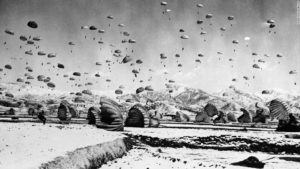Special to WorldTribune.com
 By Donald Kirk
By Donald Kirk
Suddenly the outlook for keeping the peace on the Korean peninsula has taken an alarming turn for the worse. We’ve long been accustomed to the threat of Korean War II, but now it’s looking like more than a scary mirage.
China is up in arms over the arrival of the first elements of the dreaded THAAD counter-missile system in South Korea. North Korean missile test-shots are getting more sophisticated while Pyongyang plays tough and mean with a minor Southeast Asian country with which it had had shockingly good relations.

Finally, South Korea is roiled by a political crisis that’s dividing the populace and distracting attention.
Add to that combustible mix the unpredictable policies of President Donald Trump. After years of “strategic patience” under President Obama, might Trump one day decide to back up pledges of U.S. support for the South with a “preemptive strike” — the term that’s coming into vogue as more than a vague threat?
Wearying of rhetoric from Pyongyang, might Trump tweet that he’s sick and tired of the nonsense and can’t take it anymore? North Korea is talking about targeting U.S. bases in Japan tempting the U.S. into “first-strike” mode before Kim Jong-Un decides to put these bold words into action.
Think of the potential of a preemptive strike for creating havoc.
China, for one, would not be at all happy about any attack on the protectorate that it rescued from oblivion in the Korean War and keeps on life support with massive transfusions of oil, food and much else. You could forget about the Chinese exercising their influence to persuade their North Korean comrades to abandon their beloved nukes and missiles. No way would China or Russia be enthusiastic about enforcing UN sanctions while U.S. warplanes blasted North Korea’s launching pads and reprocessing facilities.
Then there’s North Korea’s likely response to attack. What about those hundreds of artillery pieces not missiles but old-fashioned cannons massed above the demilitarized zone within range of Seoul and Incheon?
U.S. warplanes might try to carpet-bomb them, but they’d never get them all. Consider the panic that a few shells exploding in Seoul would cause. Vehicles on the expressways south would create traffic jams far more gargantuan than any we’ve seen on holiday weekends.
None of Trump’s close advisers know much about North Korea, but surely experts in the Pentagon and State Department are reminding him of the perils of acting precipitously.
Defense Secretary James Mattis and Secretary of State Rex Tillerson should be asking, aren’t we already raising the stakes by bringing THAAD to South Korea?
Might the prospect of a battery of THAAD for Terminal High Altitude Area Defense sticking up its multiple missile tubes from a golf course well south of Seoul persuade Kim Jong-Un it would not be a good idea to launch a missile strike? True, there’s no certainty a counter-missile from a THAAD battery would hit a North Korean short-or-midrange missile 100 or so miles above the earth’s surface, but we’re not too likely to see North Korea firing one for real unless the U.S. strikes first.
And then Kim Jong-Un might be reluctant to retaliate with a missile — afraid the U.S. might strike everything in sight in the North as in the Korean War.
The risk, as tensions escalate, is that North Korea might miscalculate, make a grave mistake. North Korean agents messed up the assassination of Kim Jong-Un’s older half-brother, Kim Jong-Nam, getting a couple of crazy young women from nearby countries to poison the guy in Malaysia’s Kuala Lumpur International Airport. If only the girls had not been caught, they must be thinking, we’d have gotten away with murder.
Having been exposed, however, Kim Jong-Un is displaying typical cruelty and stupidity by holding Malaysian embassy people hostage in Pyongyang.
Malaysia’s Prime Minister Najib Razak is retaliating by blocking the departure of North Koreans from Malaysia and blockading the North Korean embassy where the first secretary, mastermind of the assassination, is hiding.
For North Korea, losing Malaysia as a safe haven for laundering counterfeit currency and selling arms may be the harshest punishment of all.
Donald Kirk has been covering war and peace in Asia for decades. He’s at [email protected]
